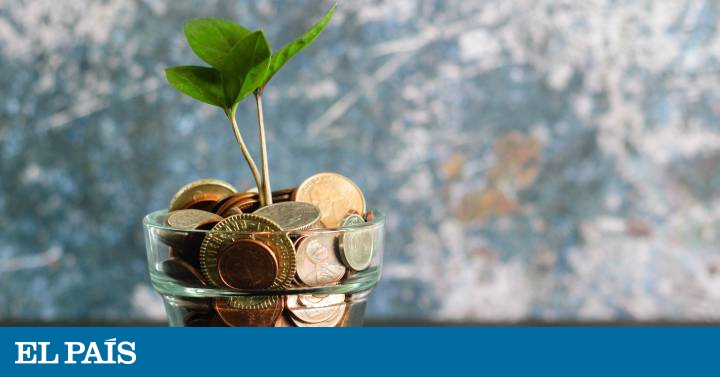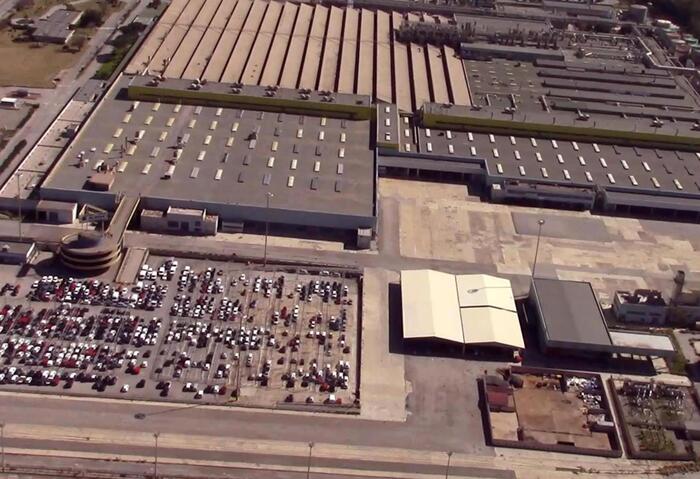Rodrigo Coquis (Lima, Peru, 1991), his father gave him an old car when he was 22 years old. "Very polluting," he clarifies. Because he was studying engineering, he thought he should create something to stop his vehicle from polluting. "I didn't even know how the cars worked," he admits. But he began to investigate and after several attempts, he succeeded. "It occurred to me that maybe someone would want to buy it, that it could be a business." Together with a partner, he submitted his idea to a university competition to obtain financing and, as the money went very fast, then to another and another. "We were like the protagonist of Pokémon, from gym to gym," he says. But their prototype was not a winning Pokémon, it was only valid for old cars and they needed one that would work for new ones. With the funds they had, they continued to research and made the discovery they needed. "Fuels have bacteria."
MORE INFORMATION
- Innovate to prosper
- Innovation: Imperative to grow with social inclusion
- The added value of migrants for doing business
On the other end of the phone, Coquis explains as didactically as possible the intrinsic aspects of his nanotechnology-based invention so that vehicles pollute less, fuel is more common and engines suffer less. More than three years of research that have turned into a profitable product —EcoVol— and a company of eight workers —GreenTech—. His is one of the examples cited by Pablo Angelelli, specialist from the Competitiveness and Innovation Division of the Inter-American Development Bank (IDB), in his report Scientific-technological-based ventures in Latin America: Importance, challenges and recommendations for the future. . "In the world we live in, with a process of accelerated technological change, it is important that the region is not left behind, and this type of undertaking is essential," he says.
These science-technology-based startups that connect universities, their research and knowledge centers, with the entrepreneurial world, are not only essential for the development of the region, but also to "face social challenges," notes Angelelli. In the case of GreenTech, it not only creates wealth and employment, also exporting its brand to other countries, but also contributes to solving a problem, that of the contamination that in Lima, the main destination of its products, far exceeds the levels recommended by World Health Organization. Only during the confinement to stop the expansion of the covid-19, when 10% of the two million cars that normally travel its streets circulated, the people of Lima have been able to breathe clean air.
For this model to be possible, "good science is an essential requirement," explains Angelelli. "And in the region there are a few countries that have these capabilities and others with weak scientific systems," he says. For this reason, it calls on governments to invest more "from the zero minute" in generating quality knowledge and that these serve to create business. "That the research is not only evaluated by the number of papers [scientific articles] published, but also by the number of patents and undertakings." Coquis agrees: "The world is full of problems and there are many roles , but there are challenges that have no solution, you have to invent it."
"We have to work in a triangle: define the key missions, that there be more teams of scientists trying to solve them and more investment," summarizes Angelelli. For this, according to the conclusions of their study, it is necessary to culturally transform the research centers and that their science can be taken to turn it into a business. "If the countries of the region prioritized this issue, with the human resources that exist, 3,000 scientific-technological-based ventures could be created," emphasizes the expert. But none of these recommendations will be fruitful, he acknowledges, without the essential foundations: higher education. Although the number of people between the ages of 18 and 24 who attend a higher education institution increased from 21% in 2000 to 43% in 2013, according to a 2017 study, half fail to finish their studies. A partially pending task. "And we must ensure that more and more children are dedicated to science and entrepreneurship, that have a scientific vocation," adds the IDB expert.
The world is full of problems and there is a lot of scientific paper; but there are challenges that have no solution, you have to invent it
Rodrigo Coquis, founder of GreeenTech
The pandemic, says Angelelli, has valued these types of projects because "they reacted quickly to invent things they did not have", for example, developing rapid tests for the detection of coronaviruses and other innovations that are being fundamental in the fight against covid- 19. But he warns: "Governments have to establish a specific policy. These types of ventures are not overnight, require years and hundreds of thousands of dollars, even millions. This is a patient investment and needs public-private partnerships."
Indeed, it took GreenTech's team about three years and it took thousands of dollars from public institutions and the IDB itself to turn their prototype into a good product. "The expensive thing in these projects is the development of the idea," says its creator. Now he plans to request more aid to repeat the process and make his technology work for pick-up vehicles , which are very popular in Latin America. Although his invention considerably reduces emissions of polluting particles, "up to 80%", according to his studies with different models from different automotive brands, it is fuel economy that "sells the most", says Coquis. "There is still not a great conscience in the region with the environment," he says.
The project of Dr. Fernando Vázquez Alaniz and Master Marlenne Perales García, both from the Universidad Juárez del Estado de Durango (UJED), however, also focuses on solving an environmental problem. Both developed a bioplastic made with orange peel, easy and fast biodegradation. Specifically, it takes 60 to 90 days to decompose, while a plastic bag takes 150 years to break down in the ocean and a buried bottle would remain about 1,000. The invention of this company, Geco, "can be used as a raw material for textiles, containers and packaging," suggests Hugo Kantis, co-author of the IDB's report on scientifically based ventures and who studied the case of this business.
"The idea arose from the contact, in 2015, between the student Giselle Mendoza, 21, and the professor of Biotechnology Marlenne Perales, when verifying that Mexico is the fifth world producer of oranges and that half of its weight is discarded, being focus of contamination and generation of respiratory diseases. Therefore, its recycling to generate rapidly biodegradable plastics could have a double positive environmental impact ", writes Kantis. In this example, it is the private company that has been interested in the invention. And not only one, but several large companies such as Bimbo, Jumex, Toks, Goss, Griffith and Reyma, the latter the most relevant Mexican in the field of plastics production.
These are examples of what, in the opinion of the experts of the IDB, which invests in this type of undertaking, can and should be done for the further development of Latin America and the Caribbean. And that these 3,000 potential scientific-technological companies emerge.
You can follow PLANETA FUTURO on Twitter and Facebook and Instagram, and subscribe here to our newsletter.








